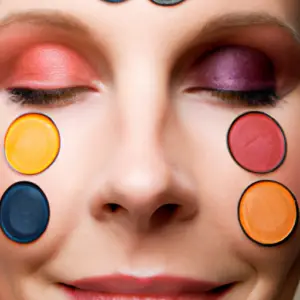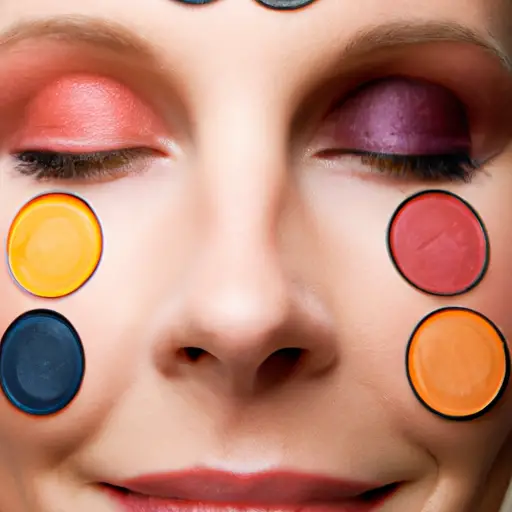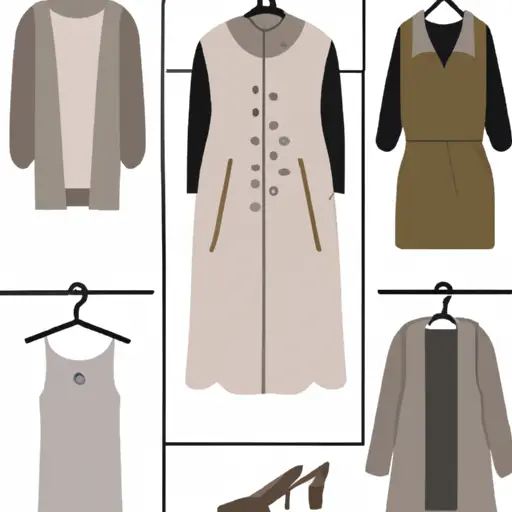Finding the Perfect Makeup for Your Skin Tone
Finding the perfect makeup for your skin tone can seem like a daunting task. After all, everyone’s complexion is different, making it difficult to know if you’re getting the right color. But with a little bit of effort and knowledge, you can easily find the shade that flatters you best.
But first, let’s talk about what we mean when we say “skin tone”. Skin tone refers to the natural hue of your skin. In most cases, this varies from person to person, but also takes into account your ethnicity and underlying pigments, like pink or yellow undertones.
The benefits of finding the right makeup for your skin tone are numerous. Not only will it make your natural beauty shine through, but it can also make your skin look more vibrant and younger than ever before. Too light or too dark shades create an unnatural look, but the right shade can help you look your best.
Understand Your Skin Tone
As someone looking for the right makeup, you’re probably aware of how important it is to match your skin tone correctly. After all, no one wants a mismatched foundation or blush that’s way too dark or light! That’s why it’s important to understand your skin tone, so you can choose the best products for yourself.
First things first – let’s dive into analyzing your skin color and undertones. Before you pick out any shades, make sure you know what color your skin actually is. This might sound obvious, but it can be tricky when you need to match a foundation to your face. Different lighting can affect how you appear, so try to evaluate your skin in both natural and artificial lighting if you can.

When taking a closer look at your skin, keep an eye out for any warm or cool tones. A lot of people don’t know this, but your skin isn’t just one solid color – it has different veins and pigments that create unique undertones. Once you’ve identified them, you can figure out which shades will work best with your skin color.
Finally, identify your skin type. Is it dry, oily, combination, or sensitive? Knowing this information can help you choose a foundation and other products that won’t irritate your skin. All in all, understanding your skin tone is key when it comes to selecting the best makeup.
Determine Your Skin Type
Have you ever looked in the mirror and asked yourself, “What’s my skin type?” Knowing your skin type is essential when it comes to choosing makeup that works with your complexion. Now, it’s time to figure out whether you have dry, oily, combination, or sensitive skin.
Dry skin is lacking oil but can be flaky, tight, and itchy. Oily skin is characterized by an excessive production of sebum, leading to a greasy appearance and enlarged pores. Combination skin is a mixture of both oily and dry areas, usually concentrated in the T-zone (forehead, nose, and chin). Lastly, sensitive skin is easily irritated and may develop redness or signs of inflammation when exposed to certain substances.
Diagnosing your skin type isn’t as hard as it seems. Start by taking a close look at what’s happening on your face. Is it dull, rough, or prone to breakouts? Or maybe it gets red and itchy if you apply certain lotions or cosmetics? These questions will help you determine which characteristics are most dominant in your unique skin type.
If you’re still uncertain, you can always do a simple test. To put your skin to the test, wash your face with a mild cleanser and let it air dry completely. After 30 minutes, lightly press a tissue to different areas of your face. If you see large amounts of oil on your forehead, nose, and chin—the T-zone—you may have oily skin. If only minimal amounts of oil show up, you probably have combination skin. Having no oil on the tissue is a sign of dry skin.
Now that you know how to determine your skin type, you can start searching for makeup products that work best for you. Just remember: keep an eye out for waterproof and non-comedogenic formulas that won’t clog your pores!
Choose the Right Shade of Foundation
Finding the perfect foundation shade is key if you want your makeup to look its best. If it’s too light or too dark, no matter how perfectly you apply it, it won’t have that airbrushed finish everyone loves. You don’t want to end up looking like a zombie or like you’ve got an orange mask on your face! So, it’s time to toss out that old bottle of foundation and find your exact match.
When you’re shopping for foundation shades, you need to consider both the color and the undertones of your skin. The color will either be warm, cool, or neutral while the undertones are either pinkish, yellowish, or olive. It can be tricky figuring out which one works best for you, but taking a few moments to really examine your skin helps you find the right product quickly.
Start off by holding different shades up to your cheek in various types of lighting. Natural light is best but you can also check it in fluorescent or incandescent lighting as these will affect the way the foundation looks on your skin. When you think you’ve found a good match, dab a bit of the product onto your jawline and blend it in. Stepping back in front of the mirror and checking it at different angles is key. If the foundation blends in seamlessly with your natural skin tone, you’ve hit the jackpot.
Another trick experienced make-up artists suggest for finding the perfect shade of foundation is to go two shades lighter than your natural skin. Doing this helps combat any redness or discoloration you may have, giving you a more natural appearance when you wear the product. Don’t forget to take into account how it will look with the rest of your makeup. Many foundations come in several formulas from powder to liquid and stick, so once you find a shade you like, experiment with different formulas to determine which one works best for you.
Select the Best Blush, Bronzer, and Highlighter for Your Skin Tone
Makeup can be tricky, but the right shades and products can take your look from meh to wowsa! When it comes to blush, bronzer, and highlighter, it’s important to choose colors that are complementary to your skin tone. Here’s how to find the perfect match.
Before you start experimenting with different shades, it’s important to figure out your skin type: Is it dry, oily, combination, or sensitive? You can determine your skin type by looking at the oiliness of your skin in the T-zone (forehead, nose, chin) versus the dryness on other parts of the face. If you’re unsure of your skin type, try a tissue blot test.
Now, let’s talk about choosing the best blush, bronzer, and highlighter for your skin tone.
For most people with fair skin, going too pink on the cheeks is a major no-no. You want to avoid pinks that are too bright; instead, go for peachy coral hues. For medium skin tones, try earthy pinks, light corals, coppers and bronze-brown hues. Darker skin tones can get away with more intense pinks, deep reds and even purples. Whichever blush color you choose, make sure it’s a few shades lighter than your foundation shade.
Bronzer should also be a few shades darker than your foundation. For fair complexions, use a light matte bronzer with neutral or yellow undertones. For medium skin tones, opt for a medium shade with either red or gold undertones. Dark complexions can choose a deep bronze hue with red, copper, or bronze undertones.
Highlighter should be champagne, beige, golden ivory or sheer gold. If you have fair skin, go for rose gold instead of gold. Medium skin tones should opt for soft peach or golden shades, while dark skin tones suit deeper gold shades. You can also experiment with a range of hues that are a shade or two lighter or darker than what works best for your skin tone.
The best way to find your perfect shades is by testing different shades and textures to see which ones work best for you. When in doubt, start off with the lighter shades and gradually intensify until your ideal level of flush is achieved.
Consider Eye Makeup
Yeah, I know what you’re thinking: “eye makeup’s easy,” right? Wrong. When you’ve got the wrong color or shade of eye makeup, no matter how perfectly you apply it, it’s instantly noticeable. That’s why picking out the right eye makeup to compliment your skin tone can be so challenging.
Selecting the ideal palette of hues is often tricky. Sure, there are certain colors that tend to look great on all skin types, but these are just a starting point. If you’ve got tanned or dark skin, for example, it’s important to take into account the undertones and shadows of your complexion before committing to a shadow. That’s why my advice is to always try out various shades and textures in natural lighting first—it’ll help you determine which ones truly flatter your face.
For most skin tones, experts suggest neutral tones like bronze, silver, and gold, but don’t shy away from experimenting with bolder colors too! Vibrant blues, pinks and purples can be incredibly vibrant and flattering (just make sure the intensity isn’t overwhelming). Even browns and blacks can be stunning if they’re used correctly—just remember to avoid anything that looks too dull.
One last tip: it never hurts to consult with a makeup artist before making any major purchases. They can often provide useful advice and tips that are specific to your skin tone, as well as help you decide which type of mascara, eyeliner and eyeshadow is best suited for you.
Finish with Lipstick or Gloss
When it comes to finding the right color lipstick or lip gloss to flatter your complexion, it’s essential to choose wisely. Just because a shade looks good on someone else doesn’t mean it’s the right one for you. You want to pick something that will complement your skin tone and bring out your natural beauty.
To do this, try sticking to cool tones if you have light skin, as warm shades can make you look washed out. On the other hand, if you have darker skin, try a warmer hue. Brownish nudes often work well on medium skin tones, and rosy reds, purples, and tangerines tend to be flattering on dark skin. Make sure to test the shades on your lips, too–sometimes the color won’t look quite the same when it’s applied to your face than it does in the package.
A great tip is to find a concealer that matches your skin tone and use that as a guide! If it seems tricky to pick the right color, you can always talk to a makeup artist at the store who can help you narrow down your choices. And don’t forget to play around with different formulas–matte, sheer, glossy, etc.–and see what looks best on you.
Conclusion
Finding the perfect makeup for your skin tone doesn’t have to be a chore. With a few savvy tips, you can look like a million bucks in no time! To sum it up, I’d recommend starting by understanding your skin color and undertones. From there, figure out your skin type so you know what kind of products to use. Then use lighting to help match your foundation shade, pick a blush, bronzer and highlighter that works with your complexion, choose eye makeup carefully, and don’t forget to select the right lipstick or gloss to bring the whole look together. It might seem daunting, but trust me, the results are worth it!
Makeup & Skin Tone FAQs
How do I choose the right foundation for my skin type?
As someone with experience in the cosmetics industry, I can tell ya, finding the right foundation for your skin tone ain’t easy. But worry not, with a little know-how, you can figure it out. First, figure out what kind of skin you have. Oily, dry, combination or sensitive? Then, take a look at the undertone of your skin, is it cool, warm, or neutral?
Once that’s out of the way, it’s time to do some shopping. If you’re the type of person who likes to get firsthand experience with products before buying, run on over to the nearest makeup counter. Give the foundation a test drive. You can bring pictures of yourself taken in natural light to see how the shade looks on you.
Online shopping is another great way to find the perfect foundation. Many makeup retailers have skin analysis tools that will help you determine the best color for you. Or, if you’re feeling particularly trendy, you can use AI-powered foundations-finding tools, like YouCam Makeup.
When all else fails, ask your friends — those who know your skin best. After all, there’s no one better to trust for honest, expert advice!






